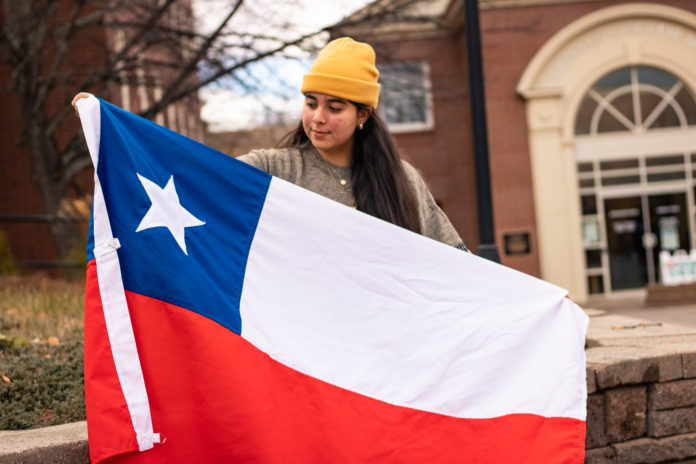
Sara Lamk, a Chilean student at St. Thomas University, said she remembers when “everything exploded.” Last November, when the protests against her country’s government worsened and were met with police brutality, Lamk messaged her professors and said she couldn’t come to class.
“I sat in the courtyard with my flag and I had a little banner that said, ‘Chile woke up,'” she said.
The third-year student living in Fredericton watched in awe as Chileans voted to draft a new political constitution on Oct. 25, while scrapping a Pinochet-era constitution that had been around for more than 20 years.
“It’s quite jaw-dropping that 78 per cent of the population voted for a new constitution,” said Lamk.
The old constitution was put in place by the Augusto Pinochet government during his reign over Chile. The new constitution will be submitted to voters in mid-2022, according to the Guardian.
The scrapping of the old constitution was preceded by a year of protests that saw human rights violations on behalf of police and government forces on civilian protestors. The violations, according to BBC news, included eye trauma from pellets along with torture and sexual violence.
It will be the first time in history that Chile has a constitution written equally by both men and women and by an assembly that’s completely democratically chosen, said BBC news.
Lamk said she felt bittersweet when learning about what was going on in her country.
“I was proud of my country for taking action in the face of injustice but it was conflicting for me because I wanted to get involved while being far away,” she said.
Even though Lamk wanted to help her country, she felt disconnected from it since she was living abroad. She began to question herself on how much she was allowed to say in response to the issues in her home country when she wasn’t living there.
During the protests, Lamk talked to her grandfather about what life during the dictatorship was like.
“He was a leftist so he saw a lot of his friends being persecuted and it was interesting to connect with my grandpa on that level and finding out that many people still live with traumas from that time,” she said.
She said many people were sexually assaulted and hold onto the trauma from that.
Even though Chileans voted to scrap the old constitution, Lamk said there is still a divide between people that condemn the old constitution and those who applaud it. She said there’s also a divide in her family and in the country where some people see what’s wrong with the dictatorship and some don’t.
As the dawn of a new political era in Chile unfolds, Chileans abroad like Lamk remain curious of the fate that awaits their country following one of the most drastic transitions it has seen.
“There’s still somehow fear. I think that maybe the world now sees the rebellion more because of social media and the power tools that we have now to be vocal,” Lamk said.
“We’re connected around the world.”
